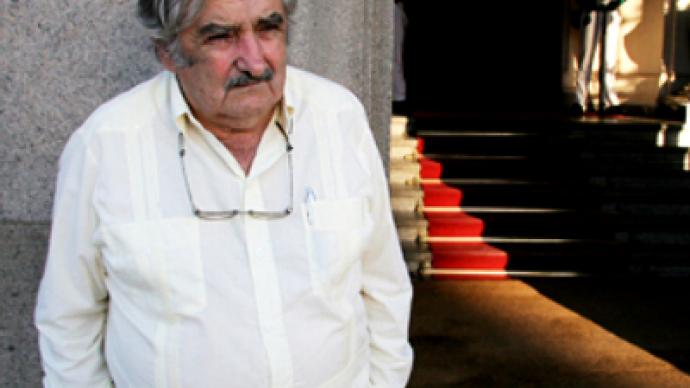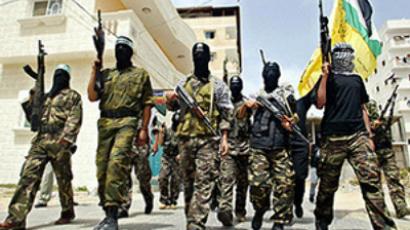American guerrilla presidents

A former Marxist fighter is president-elect of Uruguay. Mujica is the latest leader to leap from radical to democrat. Across Latin America, old hard liners are finding success with moderate, leftist politics.
On Sunday, 29th November, Uruguayans put their faith in a new leader. President Elect José “Pepé” Mujica was a guerrilla fighter in the 1970s. Surprisingly, for a former revolutionary, his success is based upon continuity, calm and moderation.
Communist members of Mujica’s Broad Front coalition will want hard-left policies. However, their leader claims the stability of Brazil and New Zealand as his inspiration, rather than the Bolivarian Revolution of Venezuela’s President Hugo Chávez.
The winning mandate was a continuation of the policies of fellow Broad Front member, the incumbent leftist President Tabaré Vázquez. Mujica inherits a good relationship with the USA, a GDP 30 percentage points higher than 2005, unemployment at a record low of 7% and falling poverty as well as rising public welfare spending and internal investment.
Status quo supporter
The former radical, Mujica, now advocates maintaining Uruguay’s status quo. During the campaign, he publicly “repented” for his own past and rejected “the stupid ideologies that come from the 1970s”.
In his past, Mujica was part of the Cuban revolution-inspired Tupamaros movement. On different occasions he was imprisoned, once for 14 Years, though escaping before being shot and recaptured. Following Uruguay’s military coup of 1973, he was incarcerated for two years at the bottom of a well.
He was finally freed under a general amnesty, which greeted the restoration of democracy in 1985. On 1st March, 2010 he will be signed in as president, completing his metamorphosis from revolutionary to democrat.
Central American guerrilla
El Salvador’s President Carlos Mauricio Funes Cartagena has made a similar journey. During the civil war (1980-1992), he was a journalist who joined Farabundo Martí National Liberation Front (FMLN), which was made up of Marxist guerrillas.
The socialist fighters spent 12 years in the jungle, only to achieve power, they took up moderate leftist policies. Now, President Funes wants to find justice for the victims of atrocities committed during the war.
After two decades of conservative governments, Funes’s was the first to recognize the sacrifice of six Jesuits priests murdered by the army during the civil war. Speaking at a ceremony to award them on 16th November (on the twentieth anniversary of the massacre), he announced his intention to “pull back a heavy veil of darkness and to let in the light of justice and truth.”
His new Defense Minister, General David Munguia Payes, served in the army during the war. Together, they form the first government to seek to address the atrocities of the past. The General said: “If the government asks me to open the archives, I will do it.”
Radical to reformist
Elsewhere on the continent, far-left socialists of the past have come to power with inclusive, reformist agendas. President Lula of Brazil was imprisoned for a month during the 1970s for union activities during military rule. He dropped his more radical policies—such as defaulting on Brazil’s national debt—and moved the Workers’ Party to centre-left social democracy. According to US President Obama, Lula has gone on to become “the world’s most popular politician”.
Chile’s President, Michelle Bachelet, was a victim of the right-wing government of Augusto Pinochet. A former member of the Socialist Youth, Bachelet and her mother were both tortured by the regime in a crackdown on leftist dissent. They subsequently fled into exile. Her father, Alberto, was imprisoned for opposing the 1973-90 dictatorship, where he was tortured and died.
Political violence made history
Mujica, Funes, Lula and Bachelet represent the shift away from political extremism and a rejection of its violence. The days when dictators, death squads, paramilitaries and guerrillas held swatches of the continent in terror are over. Bellicose, politically inspired language remains, such as in the Venezuela/Colombia spat. Coups still occur, such as in Honduras.
However, even here they have not resulted in the widespread killings that would have been expected during the Cold War. Latin America remains the most unequal region on the planet. Drug-related crime, malnutrition, poverty and scarce opportunities for the majority remain.
The move from military dictatorships to democratic governments has spread throughout the continent, with its people demanding peace. The leaders at the forefront of this change are often former radical militants who, softened under the weight of democracy, have become pragmatic and internationalist.
Jonathan Stibbs for RT













